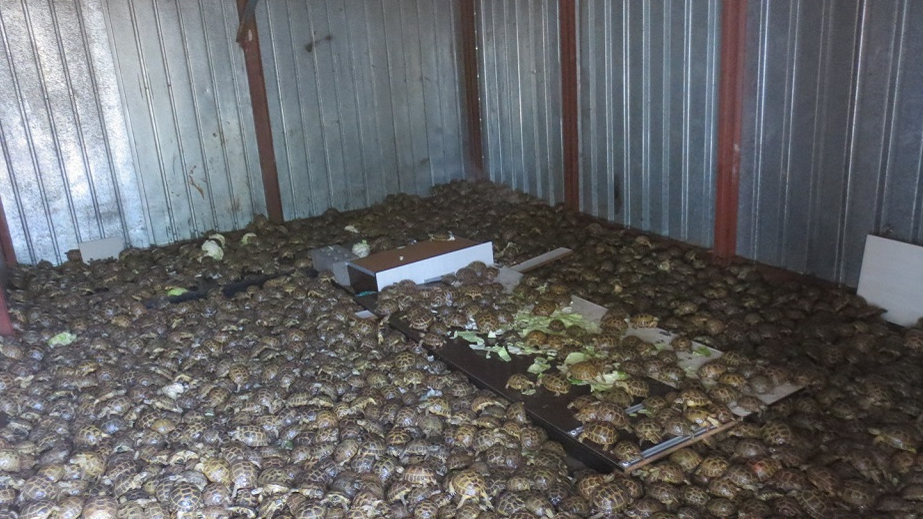

Russian Federation Customs officers seized 4,100 turtles when inspecting a truck that the smugglers had claimed to contain cabbage.
In a major global crackdown on illegal wildlife trade 23 live primates, more than 440 pieces of elephant tusks, 545 kg of ivory and thousands of marine animals were intercepted.
The raids, carried out in 109 countries by Interpol and the World Customs Organization (WCO), also seized around 10,000 live turtles and tortoises, 30 big cats and five rhino horns. Around half a tonne of pangolin parts on the way to Asian countries from Nigeria was also confiscated.
Law enforcers identified 600 suspects linked to the trade. Three suspects were arrested in Uruguay for attempting to smuggle more than 400 protected wildlife species. Raids are on to arrest kingpins involved in poaching and trade of wild animals.
“The operation highlighted the continuing trend for online wildlife trade, with 21 arrests in Spain and the seizure in Italy of 1,850 birds resulting from two online investigations,” a statement released by Interpol and WCO said.
The three-week-long operation, from June 4 to 30, was coordinated from an Operations Coordination Center at Interpol’s Global Complex for Innovation in Singapore.
“Wildlife crime not only strips our environment of its resources, but it also has an impact through the associated violence, money laundering and fraud,” said Jürgen Stock, secretary-general of Interpol.
“Operations like Thunderball are concrete actions targeting the transnational crime networks profiting from these illicit activities. We will continue our efforts with our partners to ensure that there are consequences for criminals who steal from our environment,” Stock added.
The Convention on International Trade in Endangered Species of Wild Fauna and Flora (CITES), the global wildlife regulator, teamed up with customs, police environmental authorities, wildlife and forestry agencies, and border for speedy identification of intercepted illegal shipments of species protected by international laws.
According to recent estimates, the illegal wildlife trade is worth 150 billion annually. It ranks fourth in terms of value after the illicit drug trade, counterfeiting and human trafficking.
Operation Thunderball is the third global operation targeted at curbing the illicit trade in wildlife products. Last year, 48 live primates, 14 big cats, 1.3 tons of ivory, 27,000 reptiles and 4,000 birds were confiscated in during the Operation Thunderstorm.
“For the sake of our future generations and the world we live in, it is vital that we stop criminals from putting livelihoods, security, economies and the sustainability of our planet at risk by illegally exploiting wild flora and fauna,” said Ivonne Higuero, CITES Secretary-General.

Copyright © 2018 CGTN. Beijing ICP prepared NO.16065310-3
Copyright © 2018 CGTN. Beijing ICP prepared NO.16065310-3